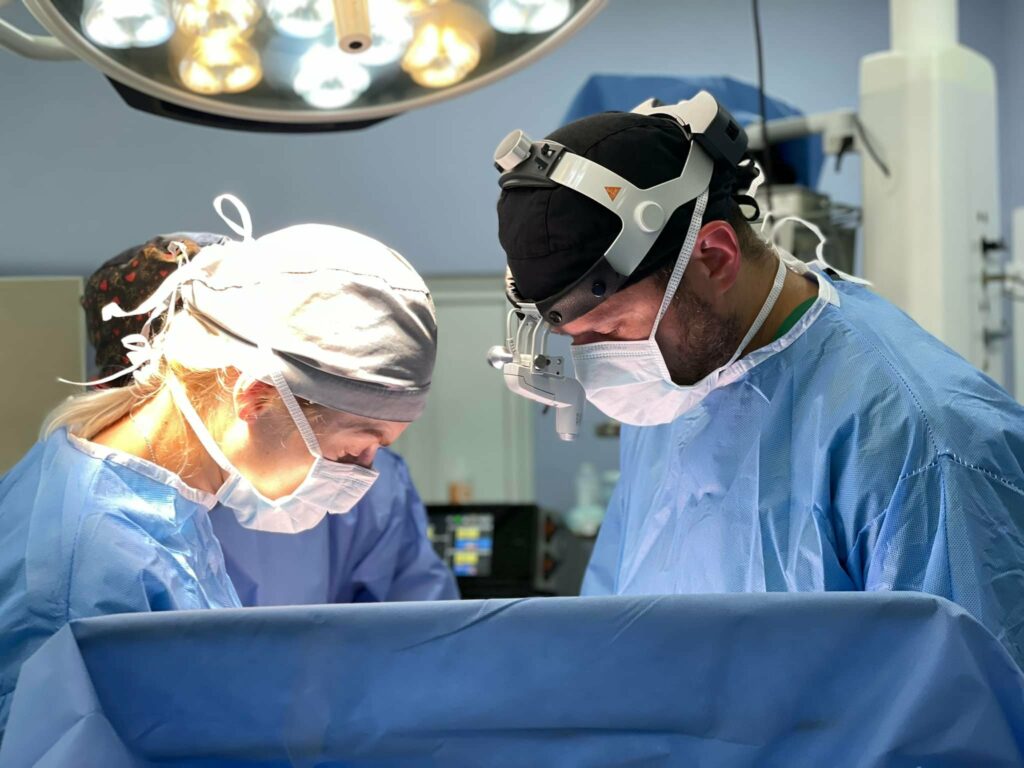7-year-old Veronika was threatened with severe oncological pathology.
The girl with a transplanted kidney was at risk of developing severe oncological pathology – lymphoma. A multidisciplinary team managed to diagnose complications in time and prevent the dangerous blood disease.
Veronika underwent a kidney transplant abroad in 2021. In the autumn of 2023, the family turned to the doctors of the Western Ukrainian Specialised Children’s Medical Centre with complaints of severely enlarged lymph nodes and high fever. After three months of treatment at the Centre, 7-year-old Veronika is feeling well – she has fully recovered.
The doctors emphasise that parents of children with transplanted organs should learn to respond quickly to any changes in their child’s health: for example, to a fever of unknown origin, especially if it is accompanied by swollen lymph nodes. Veronika’s story proves that the period after a kidney transplant is no less important than the transplant itself.
“The best thing to do in such a situation is to consult the Centre’s specialists, who have enough experience to differentiate these symptoms from mononucleosis. The girl’s recovery is the result of the coordinated and professional work of the Centre’s multidisciplinary team: nephrologists, haematologists, and immunologists. Targeted therapy with monoclonal antibodies was used in the treatment. Adequate and timely treatment helped: all groups of lymph nodes returned to normal size, kidney function was fully restored and all important indicators returned to normal,” said Roman Andrunevych, head of the Clinic of Nephrology, Dialysis and Kidney Transplantation at the ZUSDMC.
According to the doctor, proliferation is an abnormal cellular activity. The complication can occur as a result of a chronic viral infection in transplant patients receiving immunosuppressive therapy. Untreated lymphoproliferative syndrome gradually turns into blood cancer.
“Until recently, the girl’s condition was very serious, similar to sepsis. We detected an increase in all acute-phase parameters and deterioration of the transplanted organ. A CT scan with contrast showed an increase in all groups of lymph nodes. The pathological examination of the nodes removed by surgeons confirmed our suspicions – post-transplant lymphoproliferative disorder,” said Roman Andrunevych.
The Centre for Nephrology, Dialysis and Kidney Transplantation has a full range of facilities for the treatment of all nephrological diseases, medical support in the pre- and post-transplant period, regardless of the place of transplantation.
Appointments are by appointment only.
You can choose a convenient time for your visit by calling the reception during office hours:
Monday to Friday, 8:00 – 16:00.
(032) 270 22 07
(063) 189 70 50
(097) 150 70 53
In case of emergency, you can contact the reception department, which is open around the clock: (032) 270 81 68.

